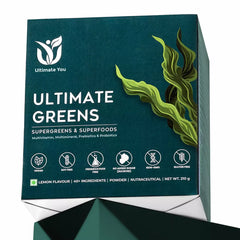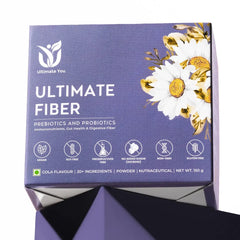Discover how time-tested herbs can help you manage today’s high-pressure lifestyle.
Did you know that nearly 80% of people experience stress due to the demands of modern life and work pressure? With long working hours, digital overload, and constant deadlines, stress has become an unavoidable part of our daily routine. Chronic stress doesn’t just affect mental well-being—it also impacts physical health, leading to issues like anxiety, sleep disturbances, and weakened immunity.
Thankfully, nature has provided us with powerful adaptogenic herbs that help combat stress and restore balance in the body. Adaptogens are natural substances that support the body’s ability to cope with stress by regulating cortisol levels and improving resilience. In this article, we’ll explore 7 powerful adaptogenic herbs that have been used for centuries to combat stress and promote overall well-being.
1. Ashwagandha (Withania somnifera)
Ashwagandha is one of the most well-known adaptogens, often referred to as the “King of Ayurvedic Herbs.” It has been used for centuries to enhance resilience to stress, reduce anxiety, and improve energy levels.
How Does It Work?
- Helps lower cortisol, the primary stress hormone.
- Reduces symptoms of anxiety and depression.
- Enhances brain function and memory.
- Supports immune function and physical endurance.
How to Use?
- Take 300–600 mg of Ashwagandha extract daily.
- Use in powder form by mixing it into warm milk or herbal tea.
- Consume in capsule or tablet form as a supplement.
2. Rhodiola Rosea
Rhodiola Rosea is a potent adaptogen known for its ability to enhance mental clarity, reduce fatigue, and improve physical endurance.
How Does It Work?
- Helps regulate cortisol levels and reduce the impact of stress.
- Enhances cognitive function and mental performance.
- Improves stamina and physical endurance.
- Supports a balanced mood and combats mild depression.
How to Use?
- Take 200–600 mg per day, preferably in the morning.
- Add Rhodiola extract to teas or smoothies.
- Available in capsule and tincture form for daily supplementation.
3. Holy Basil (Tulsi)
Holy Basil, or Tulsi, is revered in Ayurveda for its ability to promote relaxation, boost immunity, and enhance mental clarity.
How Does It Work?
- Lowers cortisol and promotes relaxation.
- Reduces inflammation and oxidative stress.
- Supports adrenal health and reduces symptoms of burnout.
- Enhances respiratory and immune function.
How to Use?
- Brew fresh or dried Tulsi leaves as herbal tea.
- Take 500 mg of Tulsi extract daily in capsule form.
- Use Tulsi-infused oils for aromatherapy and relaxation.
4. Ginseng (Panax Ginseng)
Ginseng is a powerful adaptogen that helps improve focus, combat fatigue, and enhance physical and mental resilience.
How Does It Work?
- Reduces cortisol and helps balance the body’s stress response.
- Increases energy levels and reduces fatigue.
- Supports cognitive function and memory.
- Improves immune system strength and recovery from illness.
How to Use?
- Take 200–400 mg of Ginseng extract daily.
- Brew Ginseng root in hot water to make tea.
- Use in powdered form mixed into smoothies or soups.
5. Maca Root
Maca Root, native to the Andes, is known for its ability to boost energy, balance hormones, and enhance mood.
How Does It Work?
- Helps the body adapt to stress by balancing hormone levels.
- Increases stamina and reduces feelings of anxiety.
- Supports adrenal health and improves resilience to daily stressors.
- Enhances libido and overall vitality.
How to Use?
- Take 1–3 teaspoons of Maca powder daily.
- Blend into smoothies, oatmeal, or coffee.
- Available in capsule or tablet form for convenience.
6. Shatavari (Asparagus racemosus)
Shatavari, commonly used in Ayurveda, is known for its ability to balance hormones, reduce stress, and improve overall vitality.
How Does It Work?
- Supports adrenal function and reduces cortisol levels.
- Enhances reproductive health and balances hormones.
- Improves resilience to stress and anxiety.
- Boosts immunity and enhances digestion.
How to Use?
- Take 500–1000 mg of Shatavari powder or extract daily.
- Mix into warm milk, herbal tea, or smoothies.
- Available in capsule and tincture form for easy consumption.
7. Brahmi (Bacopa monnieri)
Brahmi, a renowned Ayurvedic herb, is known for its powerful effects on cognitive function, stress reduction, and mental clarity.
How Does It Work?
- Reduces cortisol levels and alleviates stress and anxiety.
- Enhances memory, concentration, and cognitive function.
- Supports nervous system health and combats mental fatigue.
- Acts as a natural brain tonic, promoting overall mental well-being.
How to Use?
- Take 300–500 mg of Brahmi extract daily.
- Brew Brahmi leaves as tea for relaxation and mental clarity.
- Available in capsule, tablet, and powder form for daily supplementation.
How to Incorporate Adaptogens into Your Routine?
To get the best results from adaptogenic herbs, consider the following tips:
Start slow: Introduce one adaptogen at a time to see how your body responds.
Stay consistent: Most adaptogens work best when taken regularly over a period of time.
Pair with a healthy lifestyle: Adaptogens work best when combined with good sleep, balanced nutrition, and stress management techniques.
Consult a healthcare provider: If you have underlying health conditions or are taking medications, consult a professional before adding adaptogens to your routine.
Are There Any Side Effects of Using Adaptogenic Herbs?
Adaptogenic herbs are generally considered safe and well-tolerated, but like any natural remedy, they can have some mild side effects depending on the individual and dosage.
Some people may experience digestive discomfort, such as bloating, nausea, or an upset stomach, especially when taking adaptogens on an empty stomach. Others might notice drowsiness or fatigue, particularly with herbs like Ashwagandha and Brahmi, which promote relaxation. Conversely, energizing adaptogens like Rhodiola and Ginseng may cause mild jitters, restlessness, or insomnia if taken too late in the day.
People with autoimmune conditions should use caution, as some adaptogens, like Ashwagandha and Guduchi, can stimulate the immune system.
Pregnant or breastfeeding women should consult a healthcare provider before using adaptogens, as research on their effects during pregnancy is limited.
Additionally, adaptogens can interact with medications. For example, Ashwagandha may lower blood sugar and blood pressure, which could affect those on diabetes or hypertension medications. Rhodiola may influence antidepressant effectiveness.
To minimize risks, start with a low dose, observe how your body reacts, and gradually increase if needed.
Final Thoughts
Chronic stress is a common challenge, but nature has provided us with powerful adaptogenic herbs to help restore balance and resilience. Whether you choose Ashwagandha for relaxation, Rhodiola for energy, or Tulsi for overall well-being, incorporating adaptogens into your daily routine can significantly improve your ability to handle stress.
Give these herbs a try and experience the natural way to reduce stress, boost energy, and enhance your overall health!
Disclaimer
The information provided is for educational purposes only and is not intended to be a substitute for medical treatment. If you're pregnant, nursing, taking medication, or have a medical condition, it's better to consult a healthcare professional. Ultimate You does not provide any guarantee regarding the accuracy, adequacy, completeness, legality, reliability, or usefulness of the information and disclaims any liability arising from it.

Ram Charan
Content Lead
With over 7 years of experience, he crafts engaging stories and compelling narratives. He believes crisp and engaging content adds value to customers and drives immense sales to businesses. When he's not working, you'll find him hanging out with friends, binge-watching movies, and exploring the world of organic foods.
Tags
Frequently Asked Questions
What are adaptogenic herbs?
Adaptogenic herbs are natural substances that help the body adapt to stress, balance hormones, and improve overall well-being by regulating cortisol levels.
How do adaptogens help with stress relief?
Adaptogens support the adrenal glands, reduce cortisol production, and enhance the body's ability to manage physical, mental, and emotional stress.
Which adaptogenic herb is best for stress and anxiety?
Ashwagandha and Brahmi are among the best herbs for reducing stress and anxiety, promoting relaxation, and improving mental clarity.
How long does it take for adaptogenic herbs to work?
Effects vary, but most people notice benefits within a few weeks of regular use. Long-term consistency yields the best results.
Can I take multiple adaptogenic herbs together?
Yes, many adaptogens work synergistically. However, it’s best to start with one and gradually introduce others while monitoring how your body responds.
Who should avoid adaptogenic herbs?
Pregnant or breastfeeding women, people with autoimmune conditions, and those on medications should consult a doctor before using adaptogens.
- Choosing a selection results in a full page refresh.
- Opens in a new window.
15%

on your next order
By submitting your email address, you agree to receive marketing emails from Ultimate You at the email address provided. We may use information collected about you on our site to suggest the products and offers. you can withdraw your consent at any time by following the unsubscribe instructions in any email we send to you. view Terms and Privacy. Contact Ultimate Customer Care at #204-8430 Saint Monica Building, near Char Miner, Hyderabad, India, 203455.









